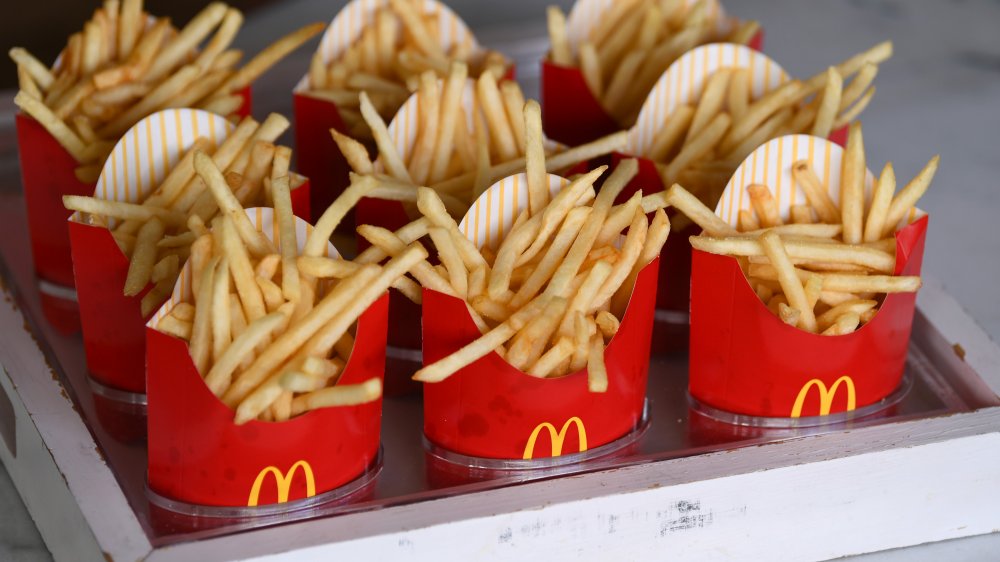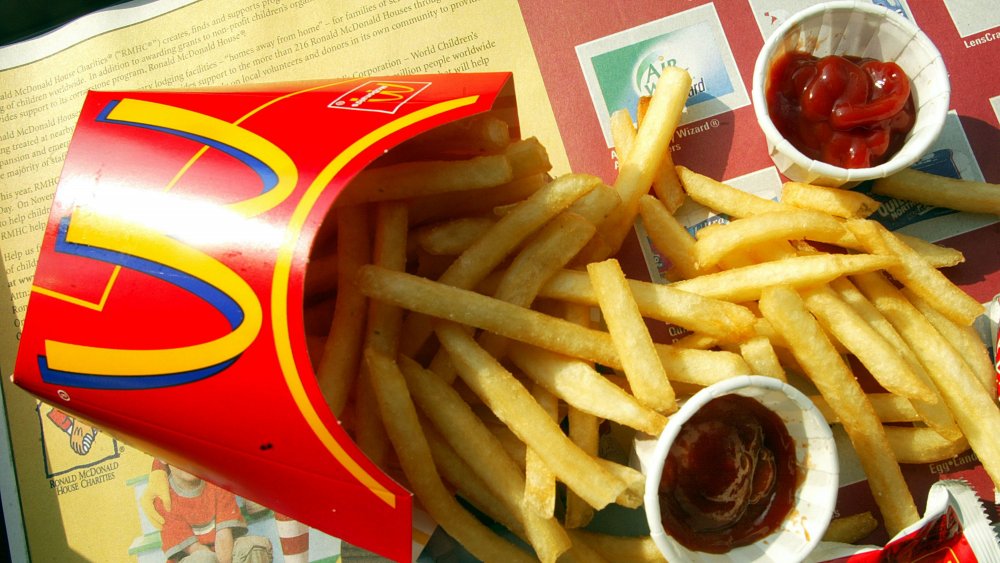Nutritionist Explains Why McDonald's Fries Are So Addictive
Your friend offers you a single, hot golden French fry from his McDonald's run. You say, "Sure," and then the next thing you know, all that's left is an empty, oil-spotted red cardboard carton. Oops. What happened? In an exclusive interview with Mashed, nutritionist, chef and food writer Robin Miller explained why we find McDonald's fries so addictive.
The most obvious reason is that McDonald's fries just taste so good. "As each fry hits the palate, the crisp salty exterior is quickly followed by the sweet, tender flesh. The brain instantly thinks, 'Wow, that's pretty incredible; I want another one,'" Miller said. But she added that it's the specific nutritional composition of the French fry that leads to that can't-stop-won't-stop phenomenon.
"It's the sugar in the starch of the potato — heightened with a little dextrose courtesy of McDonald's — that turns those deep-fried taters into gold. Amazing how a corn-derived simple sugar (dextrose) makes fries so extraordinarily pleasing," Miller explained.
Your brain on McDonald's fries
Sugar isn't the only reason why you can't stop at one fry. According to Miller, it's actually the saltiness of a McDonald's fry that sends your brain into a pleasurable overdrive. "Eating salty foods triggers the release of dopamine, a happy-hormone, brain chemical that stimulates feelings of pleasure and satisfaction," she explained.
So you've got sugar, you've got salt, and then you also have fat, Miller pointed out. This is the grand trifecta. Historically, that fat came from natural beef. "The original potato sticks were deep fried in beef fat, which set them apart from all other fast food fries. The beef fat added incredible depth of flavor and unrivaled richness," Miller noted. As yummy as this sounds, the Golden Arches got a lot of flack for artery-clogging saturated fat. "So McDonald's switched to a blend of unsaturated oils and added beef flavor — a concoction made from derivatives of wheat and milk — and got the same effect," Miller explained.
Even with this more wholesome source of fat, Miller points out that you're still looking at a major diet doozy, because "once your brain gets that first nibble of joy, it wants more."

